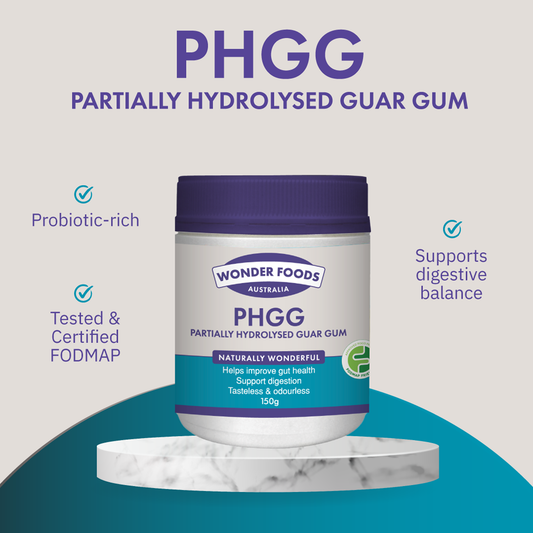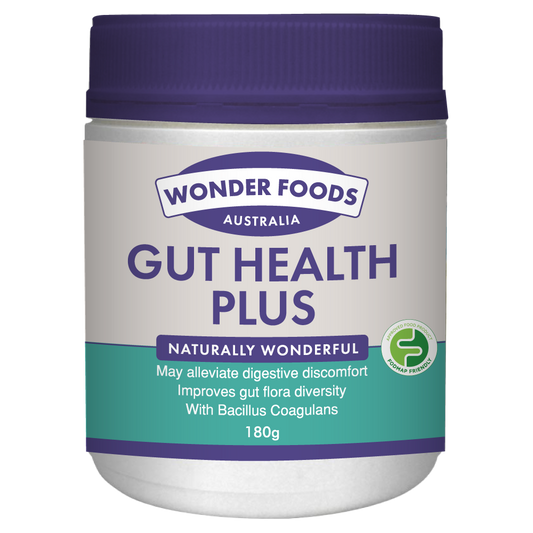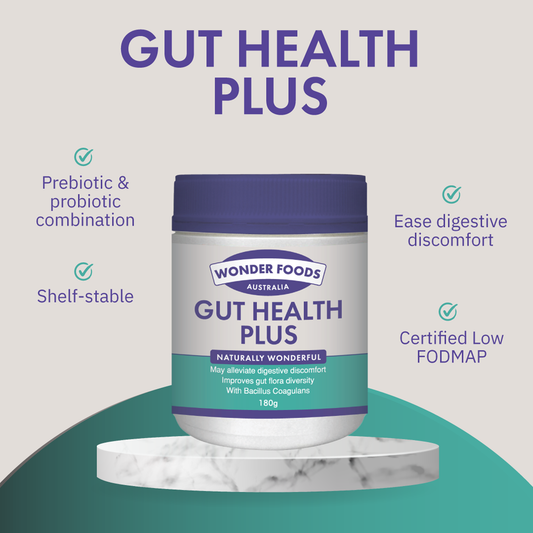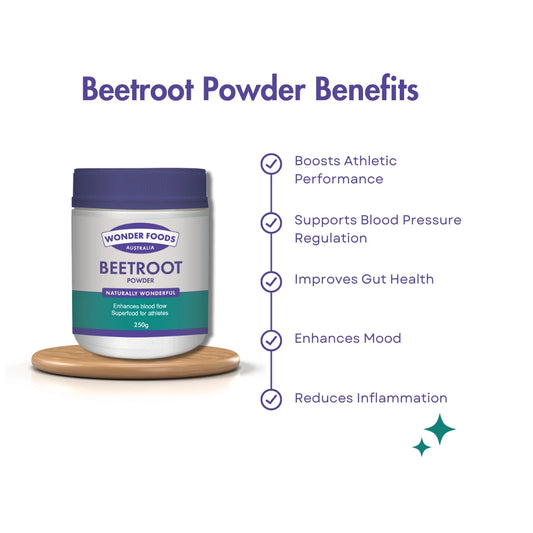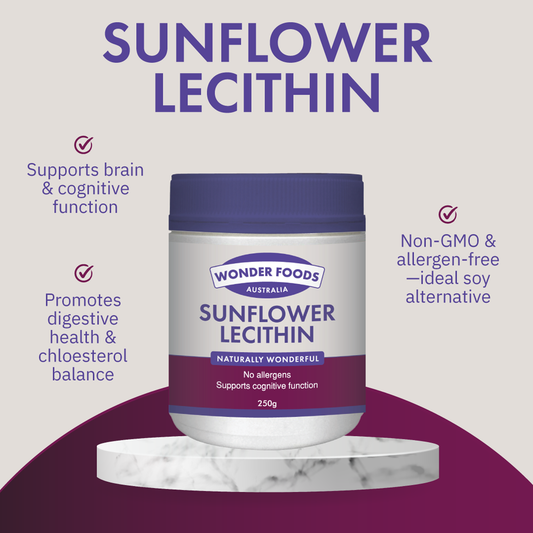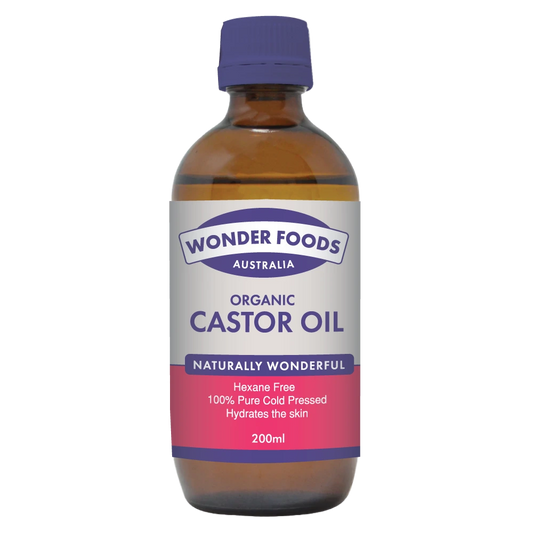
What is Fibre?
Dietary fibre is present in fruits and vegetables.
(It is also in wholegrain cereals but we don't think it should be in your diet.)
It consists of the indigestible components or compounds of plants that move through the stomach and intestines without being broken down.
Fibre is primarily a type of carbohydrate, and its key function is to maintain a healthy digestive system.
How does Fibre benefit your body?
There's substantial evidence that a diet high in fibre (often called roughage) may be linked to a reduced risk of heart disease, stroke, type 2 diabetes, and bowel cancer.
Fibre-rich foods can help us feel fuller for longer, aid digestion, and support regularity by helping to prevent constipation.
What's the Difference: Soluble v Insoluble Fibre?
There are two types of fibre: soluble (like inulin and PHGG) and insoluble.
Simply, soluble fibre (including psyllium husk, pectin and gums) dissolves in water while insoluble fibre (including cellulose and hemicellulose) doesn't.
Which is better: Soluble v Insoluble Fibre?
Soluble and insoluble fibres each offer distinct health benefits.
When soluble fibre dissolves, it forms a gel-like substance that can aid digestion in various ways.
It may help lower blood cholesterol and manage blood sugar levels, supporting better glucose control and potentially lowering diabetes risk.
Insoluble fibre, on the other hand, draws water into the stool, making it softer and easier to pass, which reduces strain on the bowels.
It promotes bowel health and regularity and also supports insulin sensitivity. Like soluble fibre, it may help decrease the risk of developing diabetes.
How much Fibre per Day?
General recommendations are:
- Men should aim for 30g of fibre per day.
- Women should aim for 25g of fibre per day.
The general consensus is most of our population (possibly over 95%!) is not getting enough daily fibre.
This is why so many Health Practitioners recommend a dietary fibre supplement like Organic Inulin or Partially Hydrolysed Guar Gum (PHGG).
Does Fibre help with Depression?
Research suggests a possible link between dietary fibre intake and depression.
Studies indicate that a higher intake of total dietary fibre may be associated with reduced odds of experiencing depression.
Does Fibre help with Anxiety?
Research indicates a potential connection between dietary fibre intake and anxiety, with findings suggesting that higher fibre consumption may be linked to lower chances of experiencing anxiety.
Can Fibre help with Fat Loss?
Eating soluble fibre supports a healthy gut microbiome and may aid in overall fat loss by naturally curbing your appetite.
The extra 'bulk' may help keep you feeling fuller for longer.
To enhance belly fat reduction, pair a diet high in protein and rich in soluble fibre with lifestyle habits like:
- Daily physical activity
- Strength training 2-3x per week
- Limiting or, even better, eliminating alcohol intake.
- Including stress-relieving activities into your daily routine
Can Fibre help lower Cholesterol?
Research suggests daily intake of at least 25 grams of dietary fibre is linked to lower body weight, blood pressure, blood sugar levels, and cholesterol.
Can Fibre help lower Blood Sugar?
Soluble fibre offers significant health benefits.
It forms a thick gel in the intestines, slowing digestion to prevent blood sugar spikes.
Health Practitioners often recommend those with Type 2 Diabetes increase their fibre intake.
Is Fibre a Prebiotic?
Although not all dietary fibres are prebiotic, all prebiotics are dietary fibres.
Therefore, the recommended intakes of dietary fibre can provide prebiotics to the diet.
What is a Synbiotic?
A synbiotic (like Wonder Foods Gut Health Plus) is a combination of probiotics and prebiotics that supports the host’s health by enhancing the survival and activity of beneficial microorganisms in the gut.
Conclusion
In summary, incorporating fibre-rich foods, probiotics, prebiotics, or even synbiotics into your diet can be a powerful way to support digestion, heart health, and overall well-being.
Whether it’s soluble fibre helping to balance blood sugar and cholesterol or insoluble fibre promoting regularity, the benefits of fibre are broad and impactful.
Adding these elements to your routine can contribute to long-term health and vitality
Disclaimer: This post is for informational purposes only and is not intended as medical advice.
Wonder Foods offers this post for education purposes only. Please consult your Health Practitioner for personalised and specific information.



